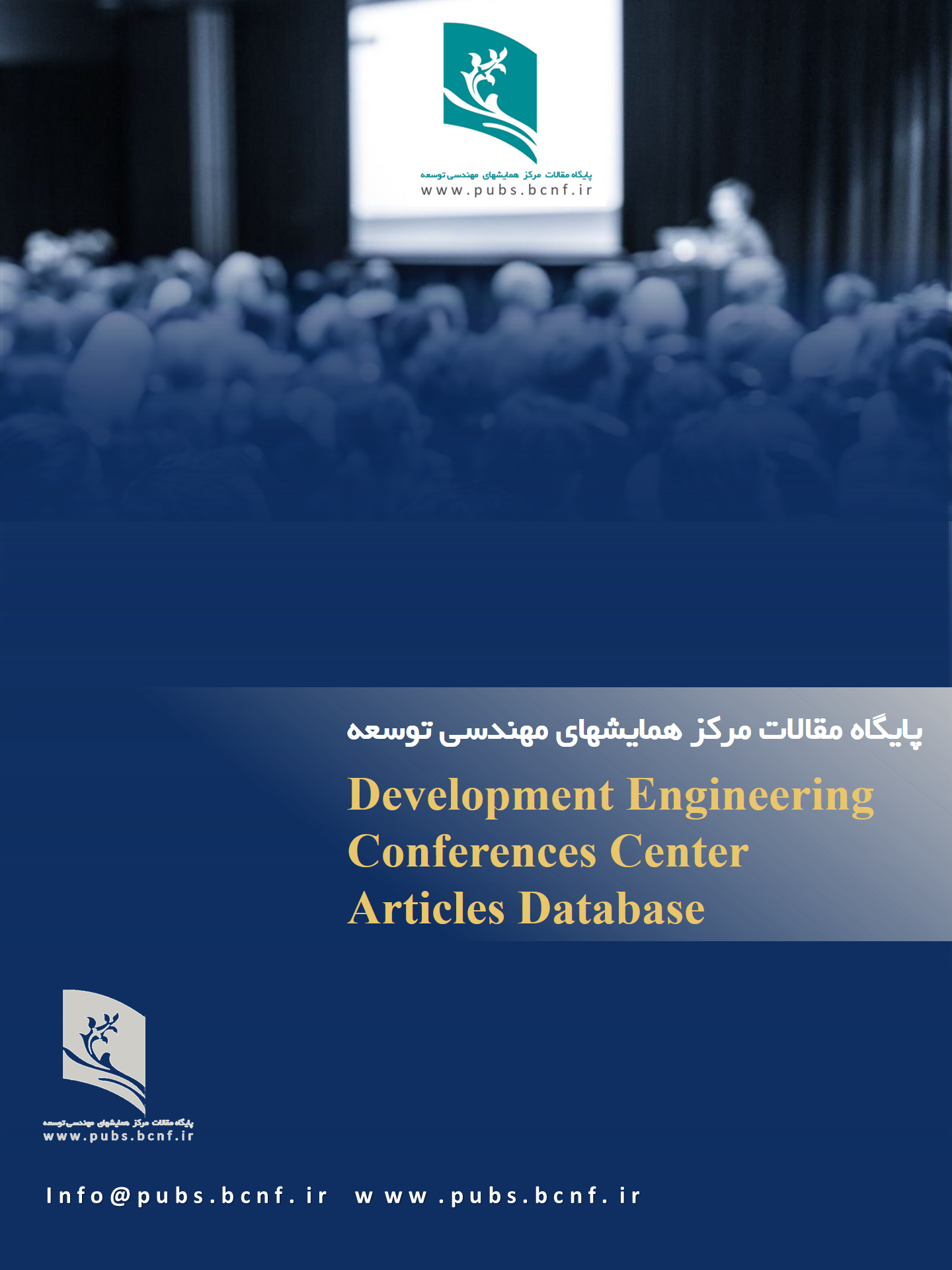بررسی مروری ویژگی های روانشناختی کاراته کارهای موفق و ناموفق در سبک کیوکوشین
Keywords:
مروری, ویژگی های روانشناختی, کاراتهAbstract
هدف از پژوهش حاضر بررسی مروری ویژگی های روانشناختی کاراته کارهای موفق و ناموفق در سبک کیوکوشین است. مطالعه حاضر از نوع مروری و از نوع علی مقایسه ای است. تا به حال مطالعات بسیاری در زمینۀ هوش هیجانی و عملکرد ورزشی صورت گرفته است و بیشتر مطالعات بر اهمیت هوش هیجانی در ارتباط با موفقیت ورزشی تأکید دارند و چه نشریات عمومی و چه نشریات دانشگاهی اذعان دارند که هیجان را نمی شود از عملکرد و موفقیت تیم ها و ورزشکاران و مربیان جدا کرد. با توجه به دانش و جستجوی محقق اکثر مطالعات انجام شده در راستای تأیید اهمیت هوش هیجانی بر عملکرد ورزشی بود. در اکثر مطالعات یا مداخلات مربوط به هوش هیجانی صورت گرفته و یا ارتباط آن با سایر عوامل روانشناختی مثبت بررسی شده است.
Downloads
References
1. شهزاد، ندا. 1392. تعیین نیم رخ روانشناختی ورزشکاران نخبه به منظور پیش بینی موفقیت حرفه ای. رساله دکتری، دانشکده تربیت بدنی و علوم ورزشی، دانشگاه تهران.
2. فتحی آشتیانی، علی. 1391. آزمون های روانشناختی، تهران. انتشارات بعثت.
3. حاتمی، فرزانه. 1391. رابطه بین سرسختی ذهنی و آمادگی جسمانی در دانشجویان دختر. مطالعات روانشناسی ورزشی، 2.
4. عبدلی، بهروز. فارسی، علیرضا. 1390. ارتباط خودکارآمدی و هوش هیجانی با عملکرد مردان والیبالیست لیگ برتر، مطالعات روانشاسی ورزشی.
5. سیدعامری. میرحسن. سعیدی، شیدا. 1392. ارتباط هوش هیجانی و موفقیت ورزشی ورزشکاران رشته های ورزشی تیمی یازدهمین المپیاد دانشجویان سراسر کشور. مطالعات روانشناسی ورزشی.
6. Lane, Am, Rc Thelwell, J Lowther, and Tj Devonport. 2010. “Emotional Intelligence
7. and Psychological Skills Use Among Athletes” 37 (2): 195–202. doi:10.2224/sbp.2009.37.2.195.
8. Ryan, Richard M, and Kirk Warren Brown. 2003. “Why We Don’t Need Self-Esteem: On Fundamental Needs, Contingent Love, and Mindfulness.” Psychological Inquiry. JSTOR, 71–76.
9. Williams, Jean Marie Ed. 1993. Applied Sport Psychology: Personal Growth to Peak Performance. Mayfield Publishing Co.
10. Riemann, Dieter, Kai Spiegelhalder, Bernd Feige, Ulrich Voderholzer, Mathias Berger, Michael Perlis, and Christoph Nissen. 2010. “The Hyperarousal Model of Insomnia: A Review of the Concept and Its Evidence.” Sleep Medicine Reviews 14 (1): 19–31. doi:10.1016/j.sm rv.2009.04.002
11. Zizzi, Samuel, Heather Deaner, and Douglas Hirschhorn. 2003. “The Relationship between Emotional Intelligence and Performance among College Basketball Players.” Journal of Applied Sport Psychology 15 (3). Taylor & Francis: 262–69.
12. Hodge, Ken, Justine B. Allen, and Liz Smellie. 2008. “Motivation in Masters Sport: Achievement and Social Goals.” Psychology of Sport and Exercise 9 (2): 157–76. doi:10.1016/j.psychsport.2007.03.002
13. Crust, Lee, and Christian Swann. 2013. “The Relationship between Mental Toughness and Dispositional Flow The Relationship between Mental Toughness and Dispositional Flow.” European Journal of Sport Science 13 (2): 215–20. doi:10.1080/17461391.2011.635698.
14. Anshel, Mark H, L R T Williams, and Sheila M Williams. 2000. “Coping Style Following Acute Stress in Competitive Sport.” The Journal of Social Psychology 140 (6). Taylor & Francis: 751-73
15. Lane, Andrew M, Richard C Thelwell, James Lowther, and Tracey J Devonport. 2009. “Emotional Intelligence and Psychological Skills Use among Athletes.” Social Behavior and Personality: An International Journal 37 (2). Scientific Journal Publishers: 195–201
16. Kabat-Zinn, Jon. 2005. Coming to Our Senses: Healing Ourselves and the World through Mindfulness. Hachette UK.
17. Tahmasebi Boroujeni, Shahzad , Sanam Beigom Ghods Mirheydari, Zahra Kaviri, and Sara Shahhosseini. 2012. “The Survey of Relationship and Comparison: Emotional Intelligence, Competitive Anxiety and Mental Toughness Female Super League Basketball Players.” Procedia-Social and Behavioral Sciences 46. Elsevier: 1440–44.Goldberg, Alan S. 2005. Sports Slump Busting: 10 Steps to Mental Toughness and Peak Performance. Llumina Press.
18. Bull, Stephen J, Christopher J Shambrook, Wil James, and Jocelyne E Brooks. 2005. “Towards an Understanding of Mental Toughness in Elite English Cricketers.” Journal of Applied Sport Psychology 17 (3). Taylor & Francis: 209–27.
19. Jones, Marc. 2003. “Controlling Emotions in Sport.” The Sport Psychologist 17: 471–86
20. Kabat-Zinn, J, B Beall, and J Rippe. 1985. “A Systematic Mental Training Program Based on Mindfulness Meditation to Optimize Performance in Collegiate and Olympic Rowers.” In Poster Presented at the International Sports Medicine Congress, Copenhangen, Denmark.
21. Ryan, Richard M, and Kirk Warren Brown. 2003. “Why We Don’t Need Self-Esteem: On Fundamental Needs, Contingent Love, and Mindfulness.” Psychological Inquiry. JSTOR, 71–76.
22. Anshel, Mark H, L R T Williams, and Sheila M Williams. 2000. “Coping Style Following Acute Stress in Competitive Sport.” The Journal of Social Psychology 140 (6). Taylor & Francis: 751-73.
23. Brand, Serge, Markus Gerber, Nadeem Kalak, Roumen Kirov, Sakari Lemola, Peter J.
24. Clough, Uwe Pühse, and Edith Holsboer
25. Trachsler. 2014. “Adolescents with Greater Mental Toughness Show Higher Sleep Efficiency, More Deep Sleep and Fewer Awakenings after Sleep onseT.” Journal of Adolescent Health 54 (1). Elsevier Ltd: 109–13. doi:10.1016/j.jadohealth.2013.07.017.
26. Crust, Lee. 2007. “Mental Toughness in Sport: A Review.” International Journal of Sport and Exercise Psychology 5 (3). Taylor & Francis: 270–90.
27. Thompson, Rachel W, Keith A Kaufman, Lilian A De Petrillo, Carol R Glass, and Diane B Arnkoff. 2011. “One Year Follow up of Mindful Sport Performance Enhancement (MSPE) with Archers, Golfers, and Runners.” Journal of Clinical Sport Psychology 5 (2). Human Kinetics: 99–116.
28. Nicholls, Adam R., R. C J Polman, Andrew R. Levy, and Susan H. Backhouse. 2009. “Mental Toughness in Sport: Achievement Level, Gender, Age, Experience, and Sport Type Differences.” Personality and Individual Differences 47 (1). Elsevier Ltd: 73–75. doi:10.1016/j.paid.2009.02.006.
29. Williams, Jean Marie Ed. 1993. Applied Sport Psychology: Personal Growth to Peak Performance . Mayfield Publishing Co.
30. Bull, Stephen J, Christopher J Shambrook, Wil James, and Jocelyne E Brooks. 2005. “Towards an Understanding of Mental Toughness in Elite English Cricketers.” Journal of Applied Sport Psychology 17 (3). Taylor & Francis: 209–27
31. Gotwals, J.K., J. Stoeber, J.G.H. Dunn, and O. Stoll. 2012. “Are Perfectionistic Strivings in Sport Adaptive? A Systematic Review of Confirmatory, Contradictory, and Mixed Evidence” 53: 263–79. doi:10.1037/a0030288



